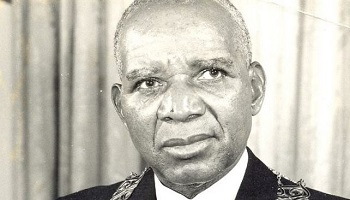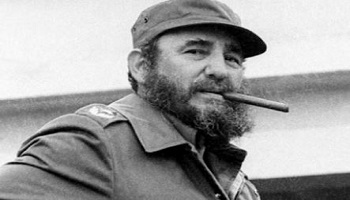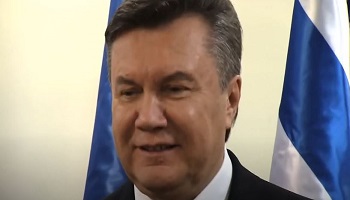
Hastings Banda Net Worth The Wealth of Malawi First President
Hastings Kamuzu Banda, the first President of Malawi, is a figure whose life story intertwines with the history and political evolution of his country. A leader who played a central role in Malawi’s fight for independence, Banda’s wealth and influence have often been subjects of public curiosity. While his political legacy is marked by his long rule and authoritarian leadership, his net worth and the means by which he accumulated wealth remain topics of intrigue.
In this blog post, we will explore Hastings Banda’s early life, political career, leadership, controversies, and how these factors contributed to his financial standing. By understanding the complexities of his political and personal life, we can uncover the real story behind his wealth and his lasting impact on Malawi.
Who Was Hastings Banda?
Born on May 14, 1906, in the small village of Kasungu, which was then part of British Central Africa (now Malawi), Hastings Banda’s early life was rooted in hardship and resilience. His father was a successful farmer, but Banda’s family faced significant challenges due to colonial policies that marginalized native Africans. Despite this, Banda pursued education fervently, traveling to South Africa, the United States, and the United Kingdom to study medicine.
Banda’s education set him apart as one of the few Malawians with a formal and international education. He received medical training at various institutions and became a qualified doctor. However, his time in the UK and the U.S. exposed him to political ideologies that would later shape his nationalist and independence-driven movements.
Banda’s Political Career and Rise to Power
Hastings Banda’s entry into politics began after he returned to Nyasaland (as Malawi was known under British colonial rule) in the 1950s. He quickly became an influential figure in the nationalist movement, which sought an end to British colonial rule. In 1961, he became the leader of the Nyasaland African Congress (NAC), which later evolved into the Malawi Congress Party (MCP). Banda’s rise was swift, and by 1964, following Malawi’s independence from Britain, he became the country’s first Prime Minister.
When Malawi officially became a republic in 1966, Hastings Banda declared himself President, a position he would hold until 1994. His presidency was marked by strong leadership but also by autocratic rule, which included suppression of political opposition, curbing of civil liberties, and manipulation of the political system to maintain power. Under his regime, Banda became synonymous with political control, but also with the creation of a distinct Malawian identity, though not without significant controversy.
Banda’s Wealth Accumulation
Banda’s financial status has long been a subject of speculation. As the leader of a country that was largely impoverished, questions arose about how he amassed his wealth. His net worth remains unclear, but there are several key factors that contributed to his accumulation of wealth over the years.
1. Control Over Malawi’s Economy
During his time in power, Banda held significant control over Malawi’s economy. He positioned himself as a key figure in the country’s economic direction, both domestically and internationally. His regime was known for its heavy reliance on cash crops such as tobacco, tea, and sugar, with these industries generating substantial revenue.
Banda also developed a monopoly over business ventures in Malawi, with state-owned enterprises under his direct control. Many of the country’s largest corporations were either owned or influenced by his government, which allowed him to personally benefit from their profits. The profits from these ventures were not always reinvested back into the country but instead helped to bolster his wealth.
2. Personal Assets and Real Estate
Banda was known to own multiple properties, both within Malawi and internationally. His luxurious homes were a symbol of his wealth, and he maintained an extravagant lifestyle despite the country’s widespread poverty. It is believed that he invested heavily in real estate during his time in power, acquiring properties that would eventually help increase his financial portfolio. His assets also included a significant collection of art and jewelry.
3. International Investments
Banda’s long years of travel and education exposed him to international markets, and many believe that he invested his wealth abroad. Though it remains difficult to trace the full extent of these investments, Banda likely held assets in foreign countries, such as the United Kingdom and the United States. His investments outside of Malawi would have helped him build a diversified portfolio and secure his wealth in case of political instability.
4. Corruption Allegations
Throughout his rule, Hastings Banda faced numerous allegations of corruption. These accusations ranged from embezzlement of public funds to the illegal appropriation of private property. Critics of his government argue that Banda amassed much of his fortune through unscrupulous means, such as forcing business owners to sell their enterprises to the government or engaging in financial practices that benefited his personal wealth rather than the national economy.
While concrete evidence of widespread corruption remains murky, the fact that Banda’s personal wealth greatly exceeded that of most Malawians raised suspicions about his financial dealings.
Hastings Banda’s Net Worth
While exact figures are hard to come by, it is widely believed that Hastings Banda’s net worth at the time of his death in 1997 was substantial. Estimates vary, but it is suggested that his wealth may have been in the range of $50 million to $100 million, a significant sum for a leader of a relatively poor nation.
The bulk of his wealth came from his control of Malawi’s economic assets, his international investments, and his personal assets. Banda’s net worth was undoubtedly enhanced by his extensive control over the country’s political and business landscape. However, given the lack of transparency and the lack of public records from his time in power, it is difficult to pinpoint the exact amount of wealth he accumulated.
The Controversy Surrounding His Wealth
The wealth that Hastings Banda accumulated during his time as president remains one of the most controversial aspects of his legacy. Many Malawians, particularly those who lived through his authoritarian rule, view his wealth as a symbol of the stark inequality that plagued the country during his reign.
Banda’s government often prioritized his personal gain over the welfare of the nation’s citizens. Despite the country’s widespread poverty, Banda lived a lavish lifestyle, which led to accusations that he was exploiting the resources of the nation for personal enrichment. The contrast between the president’s wealth and the struggles of the average Malawian citizen has led to lasting resentment among many who experienced the hardships of Banda’s rule.
Legacy and Final Years
In 1994, after years of increasing pressure, Banda was defeated in the first multi-party elections in Malawi. His departure from power marked the end of an era of authoritarian rule in the country. Although Banda’s wealth remained significant, his political influence faded, and many of his assets were either seized or redistributed.
Hastings Banda’s later years were marked by his retreat from the public eye. He spent his final years in South Africa and London before dying on November 25, 1997, at the age of 91. Despite his controversial legacy, Banda is still remembered by some as a key figure in Malawi’s independence struggle. Others remember him for his autocratic rule, his accumulation of wealth, and his heavy-handed approach to governance.
Hastings Banda’s net worth and the way he accumulated his wealth offer insight into the complexities of political leadership in post-colonial Africa. While his role in securing Malawi’s independence is widely acknowledged, the financial gains he made during his presidency paint a picture of a leader who used his political power to benefit personally.
His wealth, built on the backs of Malawians and his ability to control both political and economic resources, remains a source of debate. Hastings Banda’s legacy is one that highlights both the achievements and the shortcomings of his rule. His story serves as a reminder of the complexities of leadership, the impact of wealth on political power, and the importance of transparency in governance.



